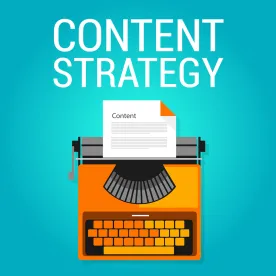Chris Fritsch and Stefanie Marrone recently hosted a master class on tips and trends in marketing technology. They shared best practices for choosing the right email marketing tool, how to redefine CRM adoption, the rise of artificial intelligence in content marketing and various ways you can let your lawyers be lawyers rather than having them get bogged down by technology. Here’s a recap of some of the topics covered.
1. Digital First
Given the shifts in law firm marketing due to social distancing, we can continue to see firms and organizations implement a digital-first strategy. Most firms are not fully in-person anymore, so firms are balancing in-person business development and marketing strategies with their digital counterparts. For example, some firms are shifting their focus from attending many in-person conferences to hosting their own webinars to develop relationships and share knowledge.
While many law firms already planned to create and implement a digital strategy, the pandemic’s long-lasting effects have caused them to place greater importance on their digital strategy. This is also being observed outside of legal, as many businesses are accelerating the development of digital strategies through acquiring email marketing tools, switching or obtaining CRMs and other marketing automation tools.
2. The Rise of the Marketing Technology Manager
Interestingly, outside of legal, marketing budgets have begun to exceed those of the IT department. Marketing departments are receiving a greater allocation of the marketing budget in order to execute various pieces of their marketing plan as they put a greater emphasis on digital channels.
Some of these plans involve implementing marketing technology that may be new to the firm. Implementing new technologies can be a challenging and time-consuming process without the right resources, so firms may be willing to allocate more of their budgets to the marketing department in order to ensure the success of such initiatives, whether by outsourcing martech managers or hiring in-house.
3. Increase in Outsourcing
One of the marketing technology trends we continue to see is a rise in outsourcing for various CRM or marketing technology positions. These include CRM managers, CRM help desk staff and data quality stewards.
Outsourcing CRM and martech positions has many benefits for firms that may not have the resources to hire in-house staff that extends beyond just cost savings.
Outsourcing allows firms to choose which resources they need for ongoing full-time positions and/or to staff a limited-scope project. Most outsourcing service providers can quickly get up to speed on client goals and can work more efficiently than internal resources who have other responsibilities and priorities.
4. Mobile First Outside of Legal
Because mobile web traffic has surpassed desktop web traffic, google and other search engines have put greater importance on the mobile-friendliness of websites. Some law firms have invested in developing their mobile sites as a result and opted for more modern web design and functionality to keep users on their site longer, thus lowering bounce rates.
5. How to Pick the Right Email Marketing Tool
Email marketing has become an integral communications vehicle for law firms and picking the right tool is crucial. So how do you know which email marketing software to choose? Chris says to make sure the software can integrate with your CRM system. There are several reputable legal service providers that offer this such as Vuture and Concep.
Some law firms are choosing email marketing tools that are not specific to the legal industry, but before you invest in one, ensure they integrate with your current software infrastructure – most importantly your CRM as disconnected data can create data silos, which will hinder your email marketing system’s ability to accurately report on important metrics vital to the health of your lists as well as maintaining a positive sender reputation.
Stefanie notes that many law firms produce high-value content, such as blog posts or client alerts, but to ensure that your target audience is actually receiving them is tantamount. That’s why having an email marketing system that provides useful metrics highlighting the performance of your content, including open rates, clickthrough rates, bounce rates and unsubscribe rates is important to manage your sender reputation. It’s even more critical to use this information to create a more effective content strategy based on your audience’s preferences.
Understanding how each of these martech trends can impact your firm is essential to be successful today. If you would like to watch Chris and Stefanie talk about these topics and others, watch a replay of their free masterclass here:
Stefanie Marrone of Stefanie Marrone Consulting also contributed to this article.




 />i
/>i
